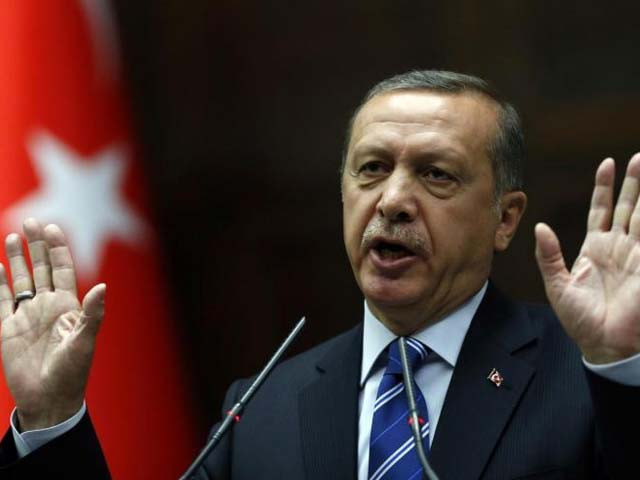The two sides do not appear to be interested in toning down the rhetoric or working towards normalcy. Turkish strongman President Recep Tayyip Erdogan upped the ante with the following remarks:
“I have said that I had thought Nazism was over, but that I was wrong. Nazism is alive in the West”.
The barrage of verbal attacks did not end with equating Germany and the Netherlands to the much derided Nazi Third Reich, it went ahead to claim that the ‘moral compass’ of the Dutch was broken and that the Netherlands was essentially a ‘Banana Republic’. Senior government officials have confirmed that the diplomatic spat has the potential of severely impacting economic, political and diplomatic ties going into the future.
On the surface, it might appear that Erdogan has once again lost his cool over what he describes as the discriminatory attitude of Western Europe. However, on closer inspection it’s all about electoral politics in both countries. The Dutch are going to the polls in a matter of days with the centre-right Prime Minister Mark Rutte fighting off a strong challenge from the far-right Euro-sceptic Geert Wilders. At the moment, Wilders is riding the wave of populist sentiments in Western Europe over immigration.
In a month, the Turks will go to ballot in a referendum deciding between a presidential and a parliamentary system for their country. Erdogan is aiming to consolidate power in his office and faces a relatively weaker opposition.
Challenging and confronting Erdogan, a moderate Islamist with autocratic tendencies, is exactly the kind of traction that Rutte will be looking for going into the elections. The predicted response from Erdogan and the Turkish government will also play in Rutte’s favour.
The dominant parties of the Dutch political landscape have shifted their policy from wooing the ethno-religious minorities of the country to appealing to the core of their native populace. Nativism is the dominant political posture in the major parties that are either in power or are vying for it in most of Western Europe. The use of dogs and disproportionate force by the Dutch government on Turkish protestors in Rotterdam is clear indication of the dominant mood in the political landscape of the country.
On the other hand, Erdogan wants the Dutch government to play as it has been playing because that works strongly in his favour. The forceful suppression of the assemblies of Dutch-Turks will create a feeling of association with Erdogan’s stance among them.
When it comes to dual citizens, the relationship that they have with their motherland, while living in foreign lands, brings back recollections from the glorious Ottoman days. On the home front, Erdogan faced major challenges from the Republican People’s Party (CHP) – the biggest opposition party in the country – but with the diplomatic spat, the party has come to support him. Kemal Kilicdaroglu, CHP’s head commented:
“Why did you not recall your ambassador? Why don’t you recall him? Why are you not taking severe measures (against the Netherlands)?”
The building up of a consensus would mean that Erdogan would remove the last and most critical roadblock from his way to becoming an exceptionally powerful leader in Caucuses, Anatolia and a restive Middle East.
The concept of dual citizenship in the world of modern nation states and the rise of nativism has created another predicament. Wilders commented on the rioting of Dutch Turks, constituting approximately 2.5% of the Dutch population, with the following:
“It’s quite clear. Now it proves most of them have double nationality and now it proves who they are loyal to”.
He also added:
“I invite them all to leave Holland, to go to Turkey and never come back because their loyalty is not to Holland, but to the Turkish Republic”.
It also raises the question of political participation of dual nationals in both their country of origin and residence. It works conveniently if politics in both countries are either disconnected or when one country does not hold a strong point of view on the political posturing of the other country.
In the case where the European Union (EU) strongly objects to Erdogan’s authoritarian style of government and his consolidation of power, as well as Turkey blaming the EU for many alleged wrongs, the question takes a centre point in the discourse.
In the arena of foreign politics, one thing is for certain that despite any posturing by the two governments, the two countries are closely intertwined. Turkey is a major exporter for Netherlands; a significant number of Turk expatriates live there, many of whom are second or third generation naturalised citizens, and their relationship is critical to Europe’s fight against militancy and fundamentalism in the Middle East and by extension, at home. On the other hand, Netherlands is the third largest foreign investor in Turkey and a significant contributor to the Turkish economy in the form of tourism.
There are small measures that the two sides can take that can not only assist in the return of normalcy but contribute to the strengthening of relations. As it stands, feigning a complete disinterest by Western Europe towards the state of Turkey’s affairs essentially gives Erdogan the comfort of one less critic to his despotic designs.
However, calling the leaders in Western Europe remnants of Nazism will not gain Erdogan friends that are critical to any solution of immigrants and the chaos in Middle East. The problems faced by both countries are real and require concentrated efforts of all stakeholders. The sooner this is realised the better.



COMMENTS
Comments are moderated and generally will be posted if they are on-topic and not abusive.
For more information, please see our Comments FAQ